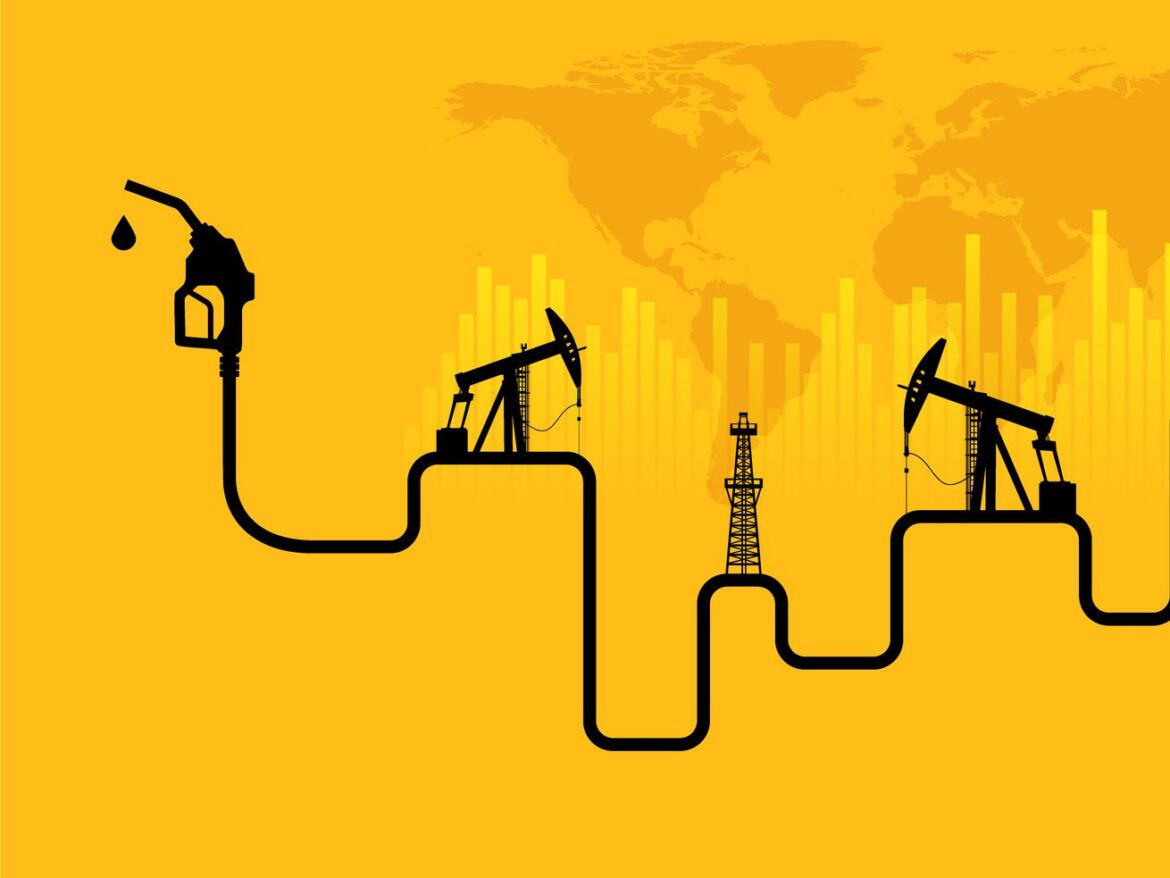You should care but not worry about what’s happening with oil.
Several of the world’s biggest oil producers say they are cutting production, and that means oil prices are higher. It’s probably not ideal for gas prices, inflation, and consumers, but it’s also not the worst. That is the TL;DR of what is happening on oil right now.
On Sunday, OPEC+, meaning the Organization of Petroleum Exporting Countries (OPEC), and its allies, the plus sign, announced it would cut production by over 1 million barrels of crude oil a day. For some context, there are about 100 million barrels of oil produced worldwide each day, so this is about 1 percent of the global supply.
The unexpected move, spearheaded by Saudi Arabia and Russia, sent oil prices higher, the intended outcome. The per-barrel price of Brent crude oil, an international benchmark, and West Texas Intermediate (WTI), a United States benchmark, subsequently rose above $80. Prior to this, oil prices were in the $60 and $70 range. OPEC+ had already cut production by 2 million barrels a day in October 2022.
“This is a big deal, and it is a big surprise,” said Tom Kloza, global head of energy analysis at the Oil Price Information Service. Oil analysts have been “bored stiff” for much of the year so far, he explained, awaiting developments such as China’s post-pandemic reopening and the potential dwindling of Russian oil, which were expected to move markets later this year. “By doing what they’re doing or pledging to do, OPEC+ is essentially moving the timeline up.”
As for what it means for your pocketbook, the answer, for now, is probably not too much. Gas prices could go up some, but they probably won’t hit where they were in 2022. “It’s not something for people to be that concerned about,” said Jay Hatfield at Infrastructure Capital Advisors. “It’s not wonderful, but it’s not the end of the world.” And hey, if you are an Exxon investor, it’s probably good for you.
What is going on here with OPEC+?
So why this, why now? As the Guardian explains, this is a preemptive move from OPEC+ ahead of an economic slowdown and potential recession. It’s also an attempt by the cartel to sort of put a floor on oil prices, and a signal it likes that $80 number.
Stewart Glickman, deputy director of equity research at CFRA Research, says that OPEC+ is trying to proactively refigure some supply-demand math because they’re concerned about what’s going to happen on the demand side. He believes there are two main issues at play.
One, there has been a lot of market anticipation around China’s reopening after harsh shutdowns due to the pandemic were ended in late 2022 and what that might mean for the global economy, but it is starting to look like it may not be as much of a game changer as anticipated. “Going into this year, everybody was talking about how this is the year of the China reopening trade that probably is inflationary and should spur a lot of demand for more commodities, including crude, and that should put some wind in the sails of crude oil,” Glickman said. “What’s happened so far is kind of underwhelming.”
Two, concerns around a potential banking crisis springing from the collapse of Silicon Valley Bank and troubles with banks in the US and Europe may explain some of OPEC+’s thinking as well. Oil prices cratered during the 2008-2009 crisis, and that memory could have producers on edge. “If this regional banking situation doesn’t unravel further and demand comes back, then the worst-case scenario is oil goes to $100 a barrel or more with these supply cuts,” Glickman said. “I think they figure if they’re going to err on one side or the other, they’d rather err on prices moving up a lot higher.”
“OPEC+ clearly want a higher price,” Gary Ross, a veteran oil consultant, told Bloomberg.
The share prices of oil companies such as Exxon and Chevron climbed on Monday as a result of the OPEC+ news. The US wasn’t exactly thrilled by what happened. “We don’t think cuts are advisable at this moment given market uncertainty — and we’ve made that clear,” a spokesperson for the National Security Council said, according to multiple media outlets. President Joe Biden has previously said Saudi Arabia would face “consequences” for its production cuts last year, though what that has meant, in practice, remains unclear.
It’s worth noting that Saudi Arabia and Russia, a member of OPEC+, aren’t exactly in love with the US right now, meaning they may not, you know, care that America is not thrilled. “You can’t have your cake and eat it, too,” Hatfield said. “If you’re going to oppose the Saudis because of their human rights record, then when you need a favor, you’re not going to get it.”
Gas is maybe going to cost some more money but hopefully not a ton
Experts say this probably isn’t going to be like the high gas prices we saw in 2022, after Russia’s invasion of Ukraine, at least not as things stand right now. But Kloza said he expects to see gas and jet fuel prices increase by about 10 cents relatively quickly. “We’ve got plenty of oil in our strategic stock unless we declare war on Canada. And I don’t think that’s going to happen unless they, you know, send another Celine Dion or Justin Bieber down here,” Kloza said. The oil people, they have jokes. “Regular people need to realize this is not a replay of 2022.”
This may wind up looking like a “hidden tax on consumers,” Glickman said. Filling up your tank to go to and from work might get a smidge more expensive, or if it becomes pricier for airlines to operate or shippers to move stuff, that could bleed into other prices, too. “All of this kind of one way or another filters into the economy,” he said. “Oil prices are up, and if you want to hedge against that, you know, buy into some of the oil companies.”
James Bullard, president of the Federal Reserve Bank of St. Louis, said in an interview on Bloomberg TV that OPEC+ cutting production could make lowering inflation tougher for central bankers. “Oil prices fluctuate around. It’s hard to track exactly. Some of that might feed into inflation and make our job a little bit more difficult,” he said.
“For the US it is not a particularly big concern, but it will be interesting to see if it is sustained and retail gas prices rise, which would matter for headline inflation expectations,” Veronica Clark, an economist at Citigroup, told the Financial Times. “Those have been coming down so it would be more worrisome if that turns around.”
Before anyone gets all wound up over prices, Hatfield noted that the price of natural gas, which goes into heating your home and electricity, is down quite a bit. So that’s something alleviating the consumer crunch. He also noted oil prices were around $80 before the banking crisis, so if we were not all in a tizzy over gas prices then, we probably won’t be now, either. “The banking crisis was likely to reduce inflation because oil went off 15 percent in a week or two, and now this kind of erases that benefit,” he said. “Maybe retail gasoline prices will go a little bit higher, but they normally go higher anyway during the summer.”
People driving more and getting on the road during the warmer months in the US will drive up gas prices some, whatever happens with OPEC.



